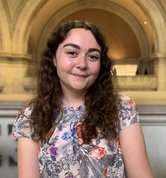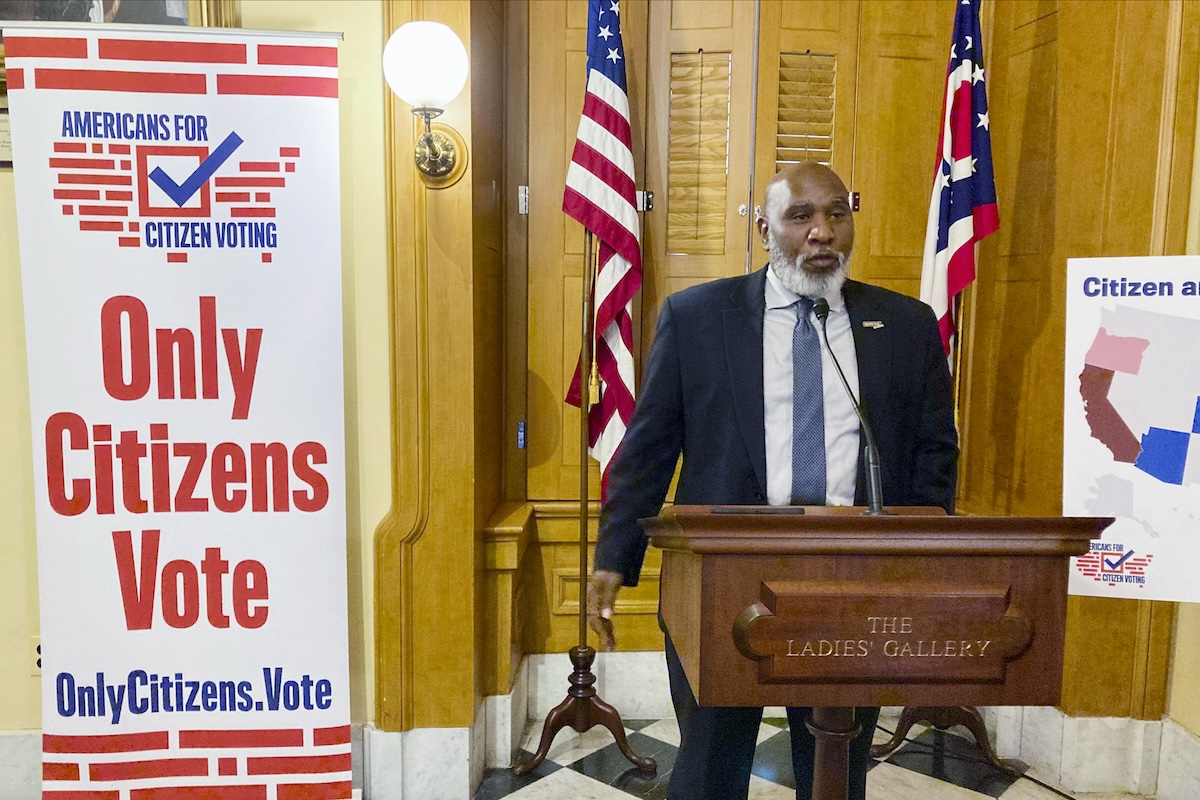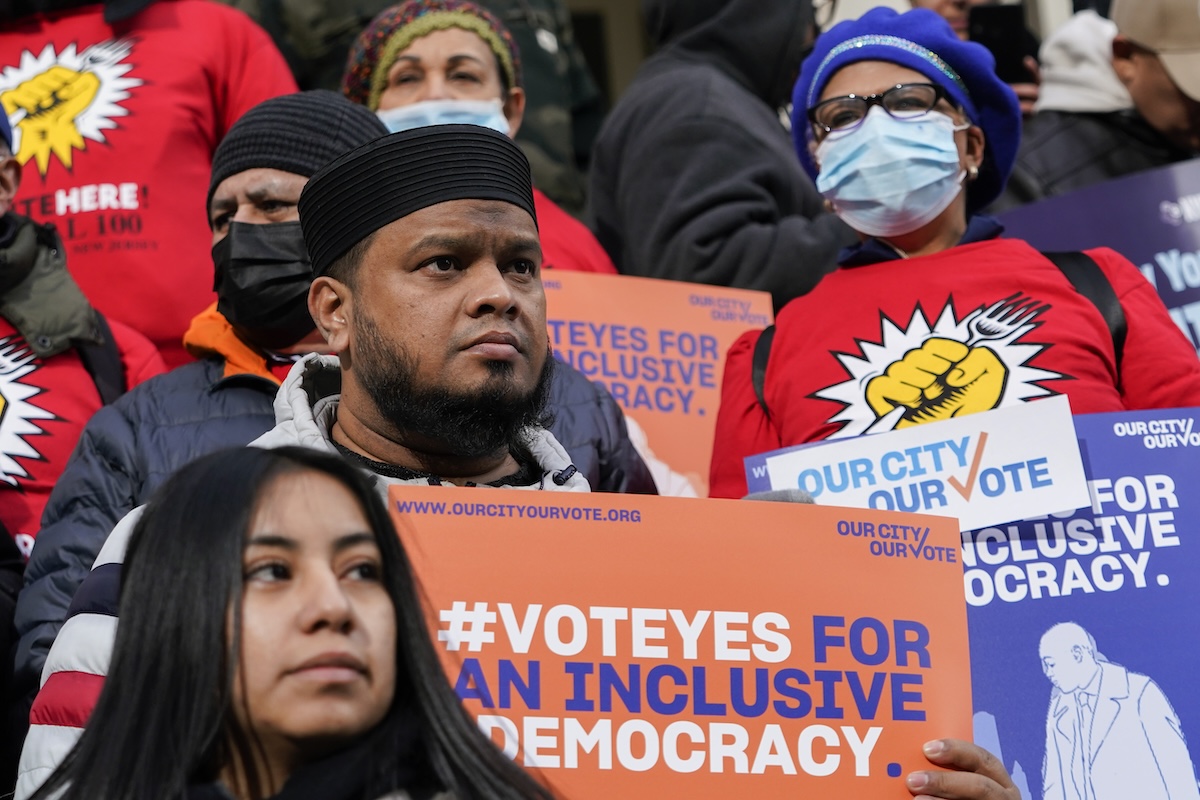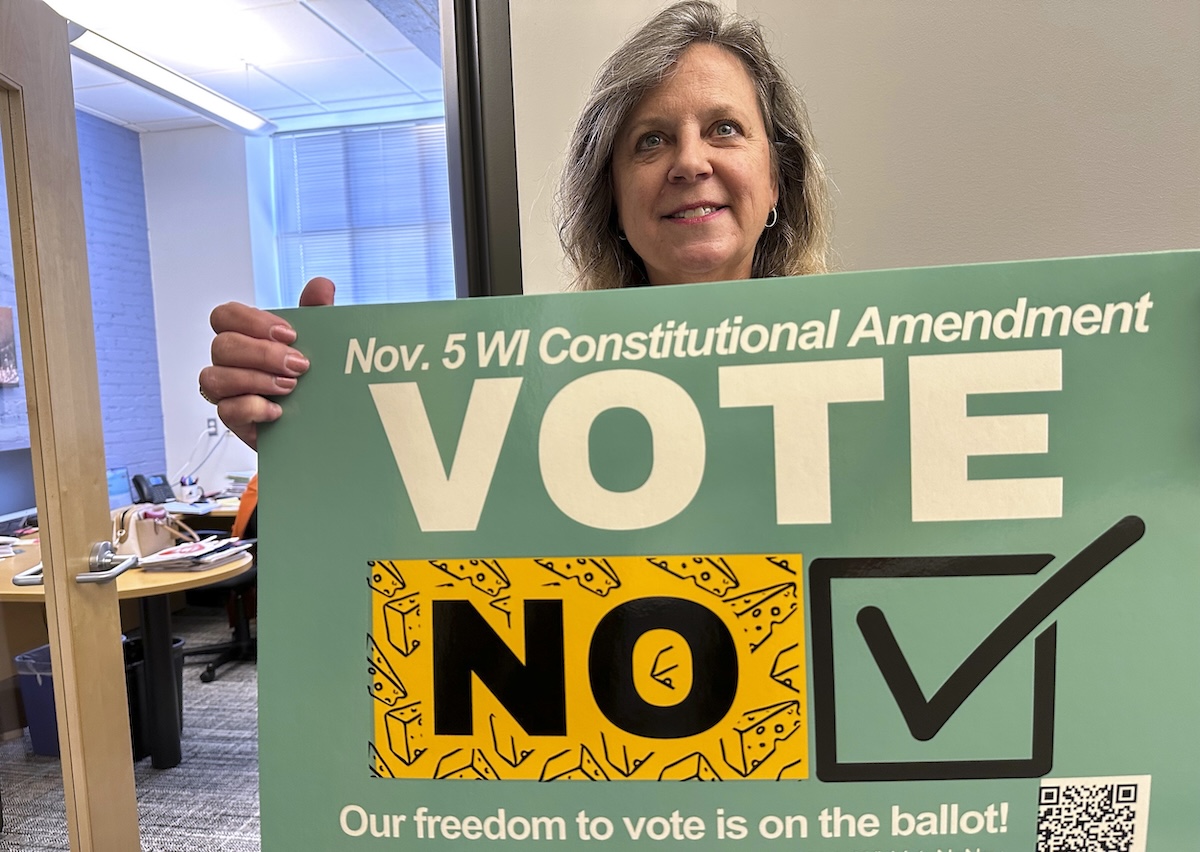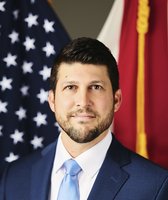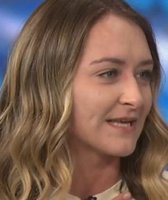Stand up for the facts!
Our only agenda is to publish the truth so you can be an informed participant in democracy.
We need your help.
I would like to contribute

People stand in line at a polling place on the first day of early in-person voting in Black Mountain, N.C., Oct. 17, 2024. (AP)
If Your Time is short
-
It is already unlawful for people who are not U.S. citizens to register to vote or cast ballots in federal, state and the vast majority of local elections. Only 19 cities allow noncitizens to vote in local races.
-
Voters in eight states will decide on ballot measures that propose state constitution language changes to further clarify that only U.S. citizens can vote in any election. Proponents say this will close the door on local noncitizen voting.
-
Election administration experts and voting rights groups say these measures are unnecessary and may discourage voters from participating or sow doubt about the U.S. election system.
As noncitizen voting has taken center stage in the 2024 presidential election, voters in eight states will decide whether to ban noncitizens from voting in any elections, including local ones — a practice that’s already rare.
U.S. citizenship is required to vote in federal, state and the vast majority of local elections. Only the District of Columbia and 18 cities in California, Maryland and Vermont allow noncitizens to vote in city council or school board elections.
Nevertheless, voters in Idaho, Iowa, Kentucky, Missouri, North Carolina, Oklahoma, South Carolina and Wisconsin will consider ballot measures to amend their state constitutions’ language to further clarify that only U.S. citizens can vote in any election. None of these states have cities that allow noncitizens to vote in local elections.
Republican-majority legislatures in all eight states voted to add the constitutional amendments to their states’ November ballots. State lawmakers and other proponents say the ballot initiatives are necessary to prevent local noncitizen voting.
Jack Tomczak, spokesperson for Americans for Citizen Voting, a political group supporting the ballot measures, said these initiatives aim "to make voting on the state and local level the exclusive right of U.S. citizens."
However, election administration experts and voting rights groups say the ballot measures are unnecessary because current laws and election procedures already prohibit noncitizens from registering to vote and casting ballots in elections for which they are ineligible to vote.
These ballot measures are "using a sledgehammer to kill a mosquito," said Jay Young, senior director of voting and democracy at Common Cause, a public advocacy group. "They’re incredibly overinclusive."
Former President Donald Trump and his supporters have repeatedly claimed, without evidence, that large numbers of noncitizens are registering to vote and participating in U.S. federal elections. Experts said the state ballot initiatives contribute to this false narrative and undermine trust in U.S. elections.
(Video by PolitiFact)
What would these ballot measures do?
Six of the eight ballot measures propose changing the state constitutions’ language from "every" U.S. citizen or "all" U.S. citizens can vote to "only" U.S. citizens can vote.
The measures in the other two states, Idaho and Kentucky, propose adding language to the state constitutions that says, "No person who is not a citizen of the United States" is allowed to vote in any election in the state. Both state constitutions already say that "every" U.S. citizen, who is at least 18 years old and has lived in the state, is eligible to vote.
For Wisconsin, the proposed language change’s practical impact "appears limited," Bree Grossi Wilde, executive director of the State Democracy Research Initiative at the University of Wisconsin-Madison Law School, wrote in an Oct. 7 analysis of the ballot measure.
"It is not apparent that existing Wisconsin law would allow a Wisconsin municipality to extend voting rights to noncitizens even if a municipality wished to do so," Wilde wrote, pointing to the mixed outcomes of legal challenges against local noncitizen voting ordinances in other states.
Two states’ ballot questions have the topic of noncitizen voting combined with other issues. For example, in Iowa, the initiative also proposes reducing the legal voting age from 21 to 18, to match federal law, and allowing 17-year-olds who will be 18 by the next general election to vote in the primary election. Missouri’s initiative also proposes banning ranked-choice voting, a method by which voters rank their preferences of candidates.
Many of the states with ballot measures already bar noncitizens from voting in any election, so the proposed constitutional changes would have "no legal effect," Joshua Douglas, a University of Kentucky law professor, wrote in an Oct. 22 Washington Monthly article.
"The propositions instead are a solution in search of a problem," Douglas wrote.
Since 2018, voters in six other states — Alabama, Colorado, Florida, Louisiana, North Dakota and Ohio — have approved similar ballot measures banning noncitizen voting in any election.
Chris Arps, then-president of Americans for Citizen Voting, speaks at the Ohio Statehouse in Columbus, Ohio, Oct. 6, 2022, about a constitutional amendment that would prohibit noncitizen voting. (AP)
Why proponents say the ballot measures are needed
Avi McCullah, president of Americans for Citizen Voting, said that her own experience becoming a U.S. citizen shaped her advocacy for citizen-only voting. McCullah, who was born in Brazil and later immigrated to the U.S., said she began the process to become a naturalized citizen after she turned 18 and wanted the right to vote.
"When it comes to voting, it’s not about being anticitizen or antiforeigners, it’s about being a part of this family, of this home. You wouldn’t let your neighbor weigh in on your family budget, but you might invite them to dinner. It’s the same concept," McCullah said during a Sept. 4 press briefing.
At the same briefing, Wisconsin state Sen. Julian Bradley, R-New Berlin, said the ballot measures are meant to protect citizens’ right to vote.
"We want to make sure that only American citizens are voting. That was the intent," Bradley said. "In Wisconsin, the law says ‘every’ and we’ve heard that there are municipalities all over the country that are taking that to mean, ‘Well, it’s not exclusionary, so anybody else can.’ We’re going to correct that in November."
South Carolina state Sen. Josh Kimbrell, R-Spartanburg, also pointed to some state constitutions using the phrase "every U.S. citizen can vote" as the reason these ballot measures are necessary.
"Unfortunately, what’s happened in jurisdictions like California, Vermont, New York, here in Washington even, is they’ve taken that as a floor, not a ceiling," Kimbrell said at the press briefing. "And so, we’re trying to close that loophole where we can really be sure that when any local municipality or school board tries to register somebody who’s not a citizen, that’s very clearly unconstitutional."
The New York City Council passed a 2022 law allowing noncitizens with permanent residency and work authorization to vote in municipal elections. But a state appeals court ruled in February that this law was unconstitutional, blocking it from taking effect.
Activists participate in a rally on the steps of City Hall ahead of a City Council vote to allow lawful permanent residents to cast votes in municipal elections, Dec. 9, 2021, in New York. (AP)
Election experts say these measures could have unintended consequences
States already have robust processes to ensure that only eligible U.S. citizens are added to the voter rolls and casting ballots, said Carolina Lopez, executive director of the Partnership for Large Election Jurisdictions, a nonpartisan organization that works with election officials in jurisdictions of 300,000 people or more. For example, Lopez said, all state voter registration forms ask the signee to confirm, "Are you a U.S. citizen?"
"So, from an operational perspective, these (ballot) measures should not lead to significant procedural changes, as the foundational verification systems are already in place (and) in line with federal and state requirements," Lopez said.
However, Tammy Patrick, chief programs officer for the National Association of Election Officials, said ballot measures can sometimes have unintended consequences.
For example, she pointed to Arizonans approving a 2004 ballot initiative that mandated proof of U.S. citizenship to vote. Patrick, who was a federal compliance officer in Arizona’s Maricopa County at the time, said many people who were U.S. citizens and supported the initiative found themselves "caught in the web of bureaucracy" when it was adopted because they didn’t have proper citizenship documentation.
"Every time I’ve seen an initiative or a law that is attempting to prevent a certain group of people from voting, whether it’s strict voter ID or documentation of citizenship, it never plays out like the politicians think it’s going to," Patrick said. "It affects all voters equally."
Jay Heck, executive director of Common Cause Wisconsin, said his group worries the Wisconsin ballot measure, if it passes, could be used to mandate proof of citizenship to vote, which would be burdensome to eligible voters, including U.S. citizens.
The Campaign Legal Center, a nonpartisan legal organization that advocates for voting rights, is also concerned that these ballot measures may have a "chilling effect for newly naturalized citizens, who certainly have the right to vote, just like all other U.S. citizens," Kate Huddleston, the group’s senior legal counsel, said.
"Those individuals (may be) concerned that there will be some sort of mix up and that they will be erroneously subject to some sort of penalty," Huddleston said. "We’re concerned that this kind of rhetoric and this kind of focus on what is really a nonexistent problem will continue to stoke fear and will continue to stoke baseless anti-immigrant sentiment."
Debra Cronmiller, League of Women Voters of Wisconsin executive director, holds a sign, Oct. 16, 2024, urging voters to reject a Republican-authored state constitution amendment that would explicitly prohibit noncitizens from voting in Wisconsin. (AP)
Ballot measures are part of a larger false narrative around noncitizen voting
Although proponents say the ballot measures intend to shore up state law to stop local noncitizen voting, voting experts said the initiatives reflect the broader false narrative that noncitizens are voting in significant numbers in U.S. elections.
"We’ve seen this election season that the conspiracy theory du jour is that people who are noncitizens are participating in our elections. We know that only citizens vote. The evidence for that is quite clear," Eliza Sweren-Becker, senior counsel in the Brennan Center for Justice’s democracy program, said. "While we recognize that no system is perfect, the exceptions to that rule are vanishingly rare."
Still, Trump and his supporters have repeatedly shared false statements that give the impression that noncitizens are registering to vote or casting ballots en masse.
Experts said they’re concerned this rhetoric is laying the foundation for politicians who disagree with the presidential election’s outcome to reject the results.
The false noncitizen voting narrative "is an effort to discourage participation by people who are lawful, eligible voters and to sow mistrust in our elections," Sweren-Becker said.
But Tomczak of Americans for Citizen Voting said the ballot initiatives his group supports are not focused on banning illegal noncitizen voting in federal elections, which he said is "probably rare."
"If they were talking about the same issue that we are talking about, it would be impossible to say it’s rare and be honest at the same time," Tomczak said. "It’s happening in 19 cities."
RELATED: A Maryland city has let noncitizens vote in local elections for 30 years. How has it worked so far?
Our Sources
Phone interview with Eliza Sweren-Becker, senior counsel in the democracy program at the Brennan Center for Justice, Oct. 23, 2024
Phone interview with Carolina Lopez, executive director of the Partnership for Large Election Jurisdictions and former deputy supervisor of elections in Miami-Dade County, Florida, Oct. 23, 2024
Phone interview with Tammy Patrick, chief programs officer for the National Association of Election Officials and former federal compliance officer in Maricopa County, Arizona, Oct. 23, 2024
Phone interview with Kate Huddleston, senior legal counsel at the Campaign Legal Center, Oct. 23, 2024
Phone interview with Jay Young, senior director of voting and democracy at Common Cause, Oct. 24, 2024
Phone interview with Chris Melody Fields Figueredo, executive director of the Ballot Initiative Strategy Center, Oct. 24, 2024
Phone interview with Jay Heck, executive director of Common Cause Wisconsin, Oct. 25, 2024
Email interview with Jack Tomczak, vice president of outreach for Americans for Citizen Voting, Oct. 24, 2024
Email interview with Michael Beckel, research director of Issue One, Oct. 24, 2024
PolitiFact, "A Maryland city has let noncitizens vote in local elections for 30 years. How has it worked so far?," Oct. 21, 2024
PolitiFact, "Trump said the DOJ is suing Virginia to allow noncitizens to vote. But that’s not the case.," Oct. 15, 2024
PolitiFact, "Trump's claim that millions of immigrants are signing up to vote illegally is Pants on Fire!," Jan. 12, 2024
PolitiFact, "'An environment of distrust': How Elon Musk amplifies falsehoods about immigration, 2024 voting," April 2, 2024
Ballotpedia, "Laws permitting noncitizens to vote in the United States," accessed Oct. 25, 2024
Ballotpedia, "2024 ballot measures," accessed Oct. 25, 2024
Ballotpedia, "Idaho Constitutional Amendment: HJR 5, Citizenship Requirement for Voting Amendment (2024)," accessed Oct. 25, 2024
Ballotpedia, "Iowa Amendment 1, Require Citizenship to Vote in Elections and Allow 17-Year-Olds to Vote in Primaries Amendment (2024)," accessed Oct. 25, 2024
Ballotpedia, "Kentucky Constitutional Amendment 1, Citizenship Requirement for Voting Amendment (2024)," accessed Oct. 25, 2024
Ballotpedia, "Missouri Amendment 7, Require Citizenship to Vote and Prohibit Ranked-Choice Voting Amendment (2024)," accessed Oct. 25, 2024
Ballotpedia, "North Carolina Citizenship Requirement for Voting Amendment (2024)," accessed Oct. 25, 2024
Ballotpedia, "Oklahoma State Question 834, Citizenship Requirement for Voting Amendment (2024)," accessed Oct. 25, 2024
Ballotpedia, "South Carolina Citizenship Requirement for Voting Amendment (2024)," accessed Oct. 25, 2024
Ballotpedia, "Wisconsin Citizenship Voting Requirement Amendment (2024)," accessed Oct. 25, 2024
Americans for Citizen Voting, "Media Briefing Book," accessed Oct. 25, 2024
Common Cause Wisconsin, "Common Cause Wisconsin Urges "NO" Vote on Cynical Constitutional Ballot Question About Voting," Oct. 16, 2024
YouTube, "BREAKING NEWS: Americans For Citizen Voting Unveil New Efforts To Stop Non-Citizens From Voting," Sept. 4, 2024
University of Wisconsin-Madison Law School’s State Democracy Research Initiative, "Explainer: The Proposed Constitutional Amendment on Noncitizen Voting on Wisconsin’s November General Election Ballot," Oct. 7, 2024
Washington Monthly, "Noncitizens Are Not Voting in Massive Numbers," Oct. 22, 2024
Stateline, "Though noncitizens can vote in few local elections, GOP goes big to make it illegal," May 6, 2024
The Associated Press, "Number of voters with unconfirmed citizenship documents more than doubles in battleground Arizona," Oct. 1, 2024
Politico, "New York City Council appeals decision to strike down non-citizen voting law," March 25, 2024
Politico, "NYC’s non-citizen voting law ruled unconstitutional on appeal," Feb. 21, 2024
City Attorney of San Francisco, "Appeal Court upholds San Francisco’s noncitizen voting program," Aug. 8, 2023
New York City Council, "NYC’s non-citizen voting law ruled unconstitutional on appeal," Feb. 21, 2024
Vermont League of Cities and Towns, "Montpelier Allowing Noncitizens to Vote in Local Elections Is Not Unconstitutional," Jan. 20, 2023
